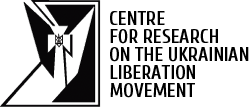
Mikheil
Javakhishvili
writer, politician
1880
|
1937
The writer was born on 8(20) November 1880, in the Sioni (Tserakvi) village, South of Georgia. Original surname ― Adamashvili. He graduated from Tsinamdzgvriantkari agricultural school and continued in Nikitsky agricultural school. In 1901, because of a tragedy in the family ― which robbers slaughtered, he stopped studying and returned at homeland.

Mikheil Javakhishvili started his writer's career in 1903, publishing novels in the Georgian press. He became a founder of a modern style in Georgian literature.
Same time, he joined the Georgian Social-Federalist Revolutionary Party in the underground; worked as an editor of several Georgian press editions.




Because of political activities, he was repressed twice; in 1906, after putting him under trial, he illegally emigrated abroad. In 1910, again, he was arrested and was sitting in prison for one year and five years of exile.


After being released, he continued artistic and political activities. During WWI, he was serving in the Russian Red Cross and was working in North Persia.
During the Democratic Republic of Georgia (1918–1921), Mikheil Javakhishvili was working in the Trade and Industrial Palate of the Republic. Same time, he joined the newly founded Georgian National–Democratic Party and was one of the active leaders and columnists in the party press.

After the occupation of Georgia by Soviet Russia in 1921, Mikheil Javakhishvili was involved in the underground resistance movement. He was a member (Deputy chairman) of the underground central committee of the Georgian National-Democratic Party. Javakhishvili was its representative in the united organisation of resistance ― Committee of Independence of Georgia.
Parallel he was working in the People's Commissariat of Agriculture, Supreme Council of Economy (ВСНХ) and Transcaucasian SFSR Foreign Trade office. Also, he worked in the Georgian Manganese Export Society ("Chemo").




Mikheil Javakhishvili was arrested by the XI Red Army Security Service on 24 February 1923. Then he was handed over to the Georgian and Transcaucasian Chekas. During the investigation, as Javakhishvili agreed to stop political activities and join the process of self-liquidation of the Georgian National-Democratic Party run by the Bolshevik regime and state security, on 4 August 1923, he was released from arrest.

Following years, Mikheil Javakhishvili actively worked on his epochal novels and created a new era in Georgian literature. For the ideology of the Communist regime and state censorship, his artistic approach and line were not comfortable. Still, according to the state agenda of the 1920s it wasn’t blocking publishing them, but Communist press and proletarian writers were strictly criticizing him.




During the Great Terror of 1937–1938, Mikheil Javakhishvili was arrested on 15 August by the NKVD of the Georgian SSR. According to the falsified acquisition of investigation, Javakhishvili was designated as a leader of a "Counterrevolutionary fascist underground organization".
After the heavy torture, he confessed. His handwritten confession was later dated by investigator or archivist wrongly as ― 21.06.1937, which later gave a complete misunderstanding of the history of his repression.
In the final conclusion of the investigation, quoted that Mikheil Javakhishvili:

"1. Was a Head of a counterrevolutionary fascist, terrorist, diversive, sabotaging and spying organization.
2. Actively was involved in the activities of the inter–party committee, which was coordinating the activities of all Anti–Soviet forces in Georgia.
3. Was active in spying and reconnaissance in favor of foreign states".
On 30 September, 1937 ― outgoing Session of the Military Collegium of the Supreme Court of USSR sentenced death to Mikheil Javakhishvili. He was shot on the same night ― 1 October 1937.
26 June of 1954, the Military Collegium of the Supreme Court of USSR rehabilitated Mikheil Javakhishvili.
Archive of former KGB of Georgian SSR contains 1 Criminal file of Mikheil Javakhishvili #23152. The file contains the order of arrest, personal list of Mikheil Javakhishvili, protocols of interrogations, correspondence of Cheka’s divisions about him, appeals of Javakhishvili etc. State security was mostly focused on identifying Mikheil Javakhishvili’s role in the underground movement as one of the leaders of the Georgian National-Democratic party.
A criminal file of Mikheil Javakhishvili #9997 of 1937, in 1991 as part of a number of criminal cases of repressed writers, was given to the Museum of Georgian Literature by the KGB of Georgian SSR. Employees of the Museum started to analyze files. First of all, part of the file of Mikheil Javakhishvili was copied on a "Xerox" machine. Soon, representatives of the President of Georgia ― Zviad Gamsakhurdia, asked to move all files under the chancellery of the President for a time. After the coup d'etat in Tbilisi ― December 1991, when the Government's house was burnt — cases of repressed writers were lost without a trace.
Copy of part of Mikheil Javakhishvili's file is still held in the Museum of Georgian Literature. The file contains main documents of criminal procedures ― order of arrest, personal list of Mikheil Javakhishvili, protocols of interrogations of him and other "suspects", protocols of double–cross interrogation and Protocols of Session of the military collegium of the Supreme court of USSR. The investigation was mostly focused on the confessing version, in which ― Mikheil Javakhishvili should look like a member of an underground conspiracy of right–wing organizations in the writers' circle.
Everyone can see and download the KGB documents about Mikheil Javakhishvili on the website of the Digital Archive of the Ukrainian liberation movement.






